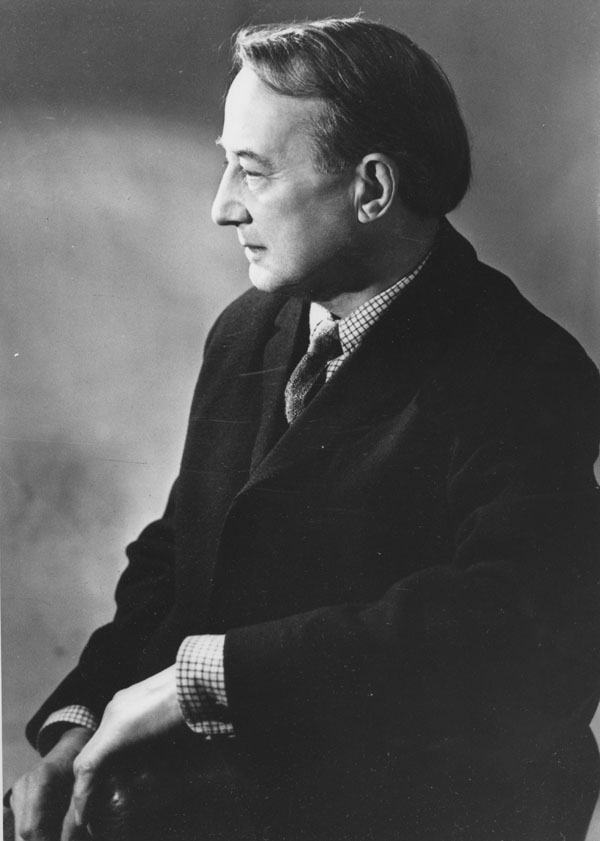
Michael Oakeshott
Early life and education[edit]
Oakeshott was born in Chelsfield, London, on 11 December 1901, the son of Joseph Francis Oakeshott, a civil servant with Inland Revenue,[4] and member of the Fabian Society,[5] and Frances Maude, daughter of George Thistle Hellicar, a well-off Islington silk-merchant.[4] Though there is no evidence that he knew her, he was related by marriage to the women's rights activist Grace Oakeshott,[6] and to the economist and social reformer Gilbert Slater.[7]
Michael Oakeshott attended St George's School, Harpenden, a new co-educational and 'progressive' boarding school from 1912 to 1920. He enjoyed his schooldays, and the Headmaster, the Rev. Cecil Grant, a disciple of Maria Montessori, later became a friend.
In 1920, Oakeshott matriculated with a Scholarship at Gonville and Caius College, Cambridge, where he read history, taking the Political Science options in both parts of the Tripos, the University of Cambridge's degree examinations. He graduated in 1923 with a first-class degree, and subsequently received an unexamined M.A., and was elected a Fellow of Caius in 1925.
As a University of Cambridge student, he admired the British idealist philosophers J. M. E. McTaggart and John Grote, and the medieval historian Zachary Nugent Brooke. He said that McTaggart's introductory lectures were the only formal philosophical training he ever received. The historian Herbert Butterfield was a contemporary, friend and fellow member of the Junior Historians society.
After graduation in 1923, Oakeshott pursued theology and German literature in a summer course at the universities of Marburg and Tübingen, and again in 1925. In between, he taught literature for a year as Senior English Master at King Edward VII Grammar School, Lytham, while simultaneously writing his fellowship dissertation, which he said was a 'dry run' for his first book, Experience and its Modes.